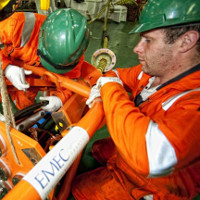A free diver sets a record for holding his breath for 24 minutes underwater, exceeding researchers’ predictions.
When Aleix Segura holds his breath, he often thinks of his heart in his chest, according to Wired. On land, focusing on holding his breath caused his heart rate to increase, but underwater, the effect was opposite. “As soon as my muscles relax and my heart slows down, I feel like I’m disconnected,” the world breathless champion shared. Sometimes, Segura relaxes to the point of falling asleep.
But that is before the shrinkage begins. When you hold your breath, the respiratory instinct is fueled not only by the lack of oxygen, but also by the accumulation of carbon dioxide . If you’ve ever held your breath to the point of being unbearable, you know the feeling. Your lungs throb and your diaphragm tightens, forcing you to gasp. Most of us quickly succumb to this urge. But Segura could hold out for a few minutes.
As an architect in Barcelona, Spain, Segura is a well-known name in freediving, a sport that requires athletes to perform many underwater tricks with a single breath without using a single breath. Support diving equipment. Some competitors specialize in deep diving. Others try to dive far. But Segura’s goal was to stop breathing on the spot. He would lie face down in the middle of the pool, holding his breath as long as he could.
Aleix Segura set a record for holding his breath underwater in February last year. (Video: YouTube).
In 2016, Segura set a Guinness world record when he held his breath for 24 minutes and 3 seconds, 54 seconds longer than his previous record and twice longer than the 11 minutes 34 seconds record set by the Association. International Development of Breathing Skills (IADA) published.
IADA does not allow athletes to inhale pure oxygen before holding their breath. For free-diving enthusiasts like Segura, holding their breath by inhaling oxygen is like a trick because it allows divers to store twice as much oxygen in their lungs.
The record-setting process typically follows an S -curve. “They improve slowly at first, then rapidly, then slow down again as the competitors approach their physiological limits.” , says Alan Nevill, a mathematician at the University of Wolverhampton who has modeled performance for dozens of world records. In other words, athletes’ records do not improve in a straight line.
However, Nevill’s statistical model only approximates the actual record Segura set in February last year. Segura’s record is 24 minutes 3 seconds, significantly longer than the model’s prediction limit of 23 minutes 44 seconds. “I don’t know what he did or how he did it, but the result was a very unusual performance. As a statistician himself, I can’t say much because he did one thing. relatively outstanding,” Nevill shared.

Freedivers are always pushing the limits and challenging scientific understanding.
When she heard about Nevill’s model, Segura laughed. “He should watch what I do in training, then he’ll know his statistic isn’t a perfect prediction,” Segura said.
Segura said that during practice, he held his breath longer than the last time he set a record. In fact, freedivers have a better time holding their breath in practice than in competition. Competition pressure affects their ability to relax and negatively affects performance.
Segura doesn’t rule out the possibility that his record will be broken but he is unsure of the final limit. “I don’t know. Maybe half an hour or more,” Segura said. According to him, free divers always challenge the limits and challenge the understanding of the scientific world. In the 1940s, researchers thought that pressure at a depth of more than 9 meters below sea level would burst a diver’s lungs. Today, free divers often descend to depths of more than 90m without the use of equipment. “We always think we’ve reached our limit. But we’re always wrong,” says Segura.

